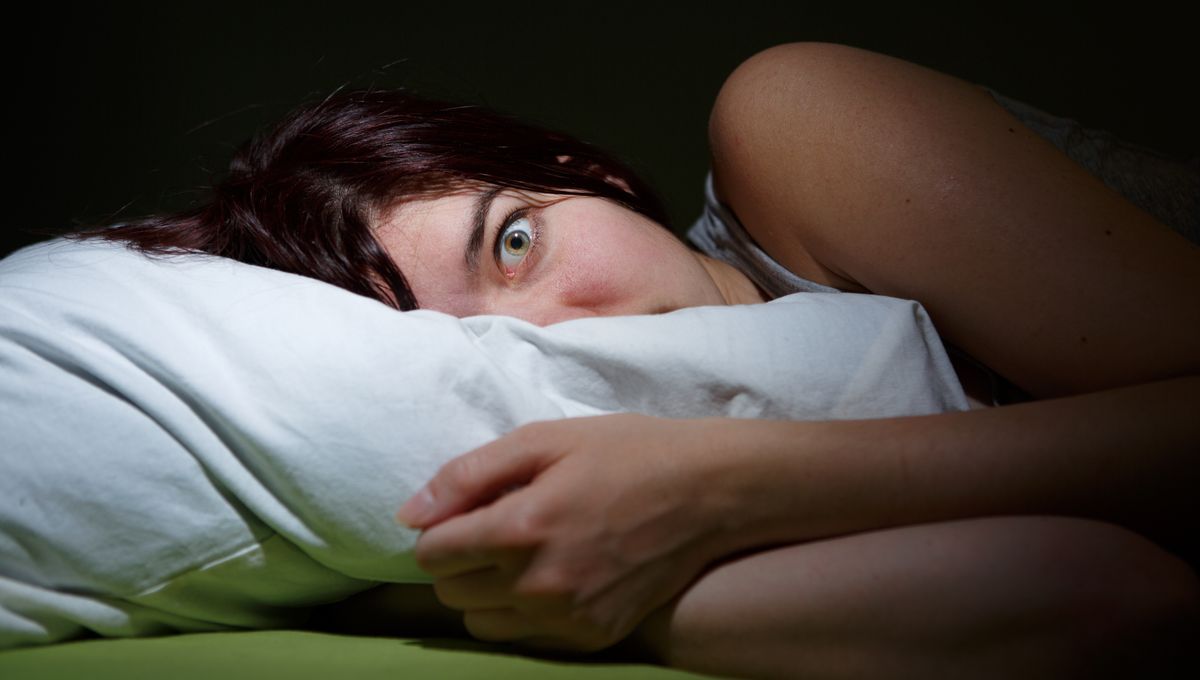
Anyone who has experienced sleep paralysis will tell you that it is one of the most terrifying things a person can go through. A form of parasomnia, this weird sleep phenomenon typically involves an inability to move while witnessing nightmarish figures hover over one’s body – despite having just woken up.
In most cases, the ghastly visual hallucinations are accompanied by tactile sensations of pressure on the chest, often resulting in an overall experience of having a malevolent being sit or push down on one’s upper body. Thankfully, these petrifying encounters usually last less than a couple of minutes and leave no lasting damage once they wear off, but they can be highly unsettling. So what’s going on here?
What is sleep paralysis?
Unsurprisingly, sleep paralysis has been subjected to numerous cultural interpretations. Among Inuit communities, for example, the experience has been linked to spiritual attacks from evil shamans attempting to steal an element of a person’s soul known as the tarniq. In parts of Brazil, meanwhile, the phenomenon is tied to folk tales about a prowling, long-nailed monster called the pisadeira who sits on people’s chests while they sleep.
Interestingly, sleep paralysis is associated with post-traumatic stress disorder, and is often experienced as a reenactment of one’s trauma. A study in Cambodia, for example, found that survivors of the Khmer Rouge genocide have particularly high rates of sleep paralysis and tend to view their shadowy attacker as a canine-like ghost in Kmer Rouge uniform, known as a khmaoch sângkât.
Taking a more scientific approach to the subject, though, western medicine classes sleep paralysis as a form of narcolepsy, which refers to the brain’s inability to control sleep-wake cycles. The experience can also strike non-narcoleptics, and tends to occur during periods of jet-lag, high stress, or poor sleep.
What causes sleep paralysis?
Sleep paralysis usually occurs as a person transitions out of the rapid eye movement (REM) phase of sleep, when the brain is extremely active and the majority of dreams occur. Usually, the neurotransmitters GABA and glycine are released during REM sleep in order to inhibit motor neurons in the spinal cord and essentially paralyze the body. It’s thought that this occurs to prevent us from acting out our dreams and injuring ourselves or our bedmates.
When we wake up, GABA and glycine levels decrease and are replaced by norepinephrine, histamine, choline, and serotonin, all of which promote arousal in the brain and body. Sleep paralysis therefore occurs when these various neuropeptides aren’t properly regulated, meaning our brains wake up but our muscles remain in a state of atonia.
It’s unclear why this is accompanied by nightmarish hallucinations, although the paralysis of the chest and throat muscles may explain why people feel as though something is sitting on top of them.
Why do people experience sleep paralysis?
A study including participants from 35 different countries found that sleep paralysis affects around 8 percent of people worldwide, although certain sub-populations appear particularly prone to these waking nightmares. For example, nearly 40 percent of Asian college students and over 40 percent of psychiatric patients of African descent described having experienced sleep paralysis at least once.
Generally, people with underlying psychiatric conditions are more likely to encounter this strange sleep phenomenon, possibly due to a dysregulation of serotonin in the brain. Shift-workers or those whose lifestyles prevent them from getting enough sleep also tend to report higher rates of sleep paralysis.
So far, scientists haven’t fully figured out why sleep paralysis occurs or how to prevent it, although a few obvious preventatives include getting more shut-eye, eating healthier, exercising, and avoiding stress.
One study even found that people who claim to have been abducted by aliens tend to have higher rates of sleep paralysis. So, either sleep paralysis causes aliens, or aliens cause sleep paralysis.
The truth is out there.
Source Link: Sleep Paralysis – The Nightmare That Continues After You Wake Up